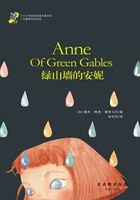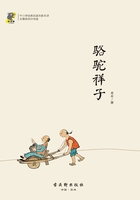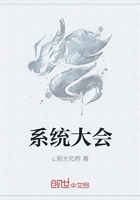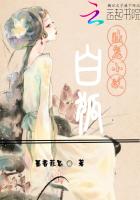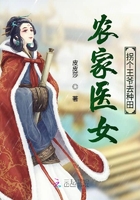Emotion1 kicks off Chinas Olympics
BEIJING, China (CNN) Fireworks, athletes and pageantry2 on a scale never before seen in the Olympics opened the Summer Games in Beijing on Friday as the Asian nation kicked off the biggest and most scrutinized Games in history.
Chinese President Hu Jintao declared the Olympics officially open, retired Chinese gymnastics champion Li Ning was carried through the air to light the Olympic cauldron, and pyrotechnics3 exploded throughout Beijing as the crowd of 91,000 at National Stadium cheered wildly.
It was a stunning4 display from the nation of 1.3 billion people. Some media observers believe that the Opening Ceremony may be the mostwatched television event in history.
IOC President Jacques Rogge spoke of Chinas longheld ambition to host the Olympics. “Tonight, that dream comes true,” he said.
Rogge mentioned the Sichuan earthquake, saying the world was moved “by the great courage and solidarity5 of the Chinese people.”
Emotion was high, as Fridays Opening Ceremony not only officially started the Summer Games but was a symbolic expression of a nation seeking its place as a global superpower.
The ceremony began at 8 p.m. local time (8 a.m. ET) on the eighth day of the eighth month of 2008-in a country where eight is the luckiest number.
The opening was an artistic mix of performance and light depicting Chinas 5,000 years of history. Fireworks shot off across the Chinese capital as thousands of drummers, acrobats6, martial artists and dancers performed under a light display at the National Stadium.
【生词注释】
1. emotionn. 情感
2. pageantryn. 盛典;壮观;华丽
3. pyrotechnicsn. 烟火表演
4. stunningadj. 极具吸引力的;极漂亮的
5. solidarityn. 团结;一致
6. acrobatn. 杂技演员
1. Who declared the Olympics officially open?
A. Li Ning.
B. Jacques Rogge.
C. Hu Jintao.
D. A famous martial artist.
2. Why was the Opening Ceremony chosen to start at 8 p.m. of 8th August, 2008?
A. Because it was convenient for the local people to watch the live broadcast.
B. Because it was a practice to begin the ceremony at that time.
C. Because Jacques Rogge would like it to be opened at that time.
D. Because eight is the luckiest number in China.
3. What do the underlined words “the Asian nation” refer to?
A. China.
B. Japan.
C. Tailand.
D. Russia.
4. Whats the main idea of the passage?
A. The 2008 Olympic Games opened in Beijing.
B. Li Ning lit the 2008 Olympic cauldron in Beijing.
C. Jacques Rogge was present in the Opening Ceremony of the 2008 Olympic Games.
D. Chinas longheld dream to host the Olympics has come true.
He has done what Mohammed Ali did for boxing, Michael Jordan for basketball, Roger Federer for tennis and Tiger Woods for golf.
Twentythreeyearold Michael Phelps has become a phenomenon in swimming.
At the 2008 Summer Olympic Games, he won eight gold medals. That was more than the whole Australian team could put together. He beat Mark Spitzs 1972 record of seven wins in the pool at the one Games. Phelps has put his name next to seven world records.
Nine days, 17 games, morning and night he competed and won. He had to beat former world record holders and gold medalists. He had to turn their wins into old news.
He won in every kind of way. He won the 400 medley1 by a body length. He won the 100meter butterfly2 by the smallest of margins3-onehundredth of a second. He won when his goggles4 leaked. He won when teammate Lezak advanced in the final leg of the 4x100m relay.
“Im just lucky to have the drive5 that I have, the talent that I have and the excitement for the sport,” Phelps said after winning his last medal.
After the Olympics, swimming will not be in the news so much. But Phelps has decided to keep working to popularize6 it.
“I dont want this sport to be an everyfouryears sport,” Phelps said. “Over the past four years, its skyrocketed. Im honored to help this sport for the next generation of swimmers who will have it better than I have.”
【生词注释】
1. medleyn. 混合泳
2. butterflyn. 蝶泳
3. marginn. 差额;页边空白;边缘;差数
4. gogglesn. 泳镜
5. driven. 动力
6. popularizevt. 普及;使流行;使通俗化
1. How many gold medals did the Australians win in the Beijing 2008 Olympics?
A. 10.
B. 9.
C. 8.
D. Fewer than 8.
2. Who won the second most gold medals in the pool at the one Games?
A. Mohammed Ali.
B. Michael Jordan.
C. Mark Spitz.
D. Lezak.
3. What does the underlined sentence in the passage mean? It means that .
A. people will not be so interested in swimming as they were during the Games
B. more and more people will be interested in Michael Phelps
C. more and more people will lose interest in swimming
D. more and more people will be interested in swimming
4. What has Michael Phelps decided to do after the Beijing 2008 Olympics?
A. To retire.B. To popularize swimming.
C. To go to college.D. To get married.
5. So many famous people are referred to in the first paragraph, in order to indicate that .
A. Phelps is a fan of sports
B. Phelps is also the top player in his field
C. Phelps is fond of swimming
D. Phelps is very famous
The Winter Olympics is also called the White Olympics. At this time, many colorful stamps are published to mark the great Games. The first stamps marking the opening came out on January 25,1932 in the United States for the 3rd White Olympics. From then on, publishing stamps during the White Olympics became a rule.
During the 4th Winter Olympic Games a group of stamps were published in Germany in November 1936. The five rings of Olympics were drawn on the front of the sportswear. It was the first time that the rings appeared on the stamps of the White Olympics.
In the 1950s, the stamps of this kind became more colorful. When the White Olympics came, the host countries as well as the nonhost countries published stamps to mark those Games. China also published four stamps in February 1980, when the Chinese sports men began to take part in the White Olympics.
Japan is the only Asian country that has ever held the White Olympics. Altogether 14,500 million stamps were sold to raise money for this sports meet.
Different kinds of sports were drawn on these small stamps. People can enjoy the beauty of the wonderful movements of some sportsmen.
【生词注释】
sportswear运动服
1. The world made it a rule to publish stamps to mark the great world games .
A. after the year 1936
B. after the 3rd White Olympics
C. before the 3rd White Olympics
D. before the year 1932

